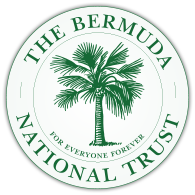Press Release: Bermuda National Trust works with partners to reinterpret sites of enslavement
Bermuda National Trust (BNT) is embarking on a long-term effort to reinterpret the heritage sites and collections under its care related to the enslavement, resistance and empowerment of Black Bermudians, other people of African descent and the local and global majority.
“Telling more of Bermuda’s story and involving more of Bermuda in that process is critical to fulfilling the Trust’s heritage mission,” said Dr. Charlotte Andrews, BNT Head of Cultural Heritage.
BNT is participating in Re-imagining International Sites of Enslavement (RISE), a year-long programme jointly hosted by the International National Trusts Organisation (INTO) and the American National Trust for Historic Preservation. According to INTO, RISE is a ‘knowledge-sharing programme that brings together managers of sites around the Atlantic with a connection to the slave trade’.
Dr. Andrews shared, “Our RISE cohort is exchanging professional experiences and best practice. Sessions so far have focused on appropriate uses of language and marketing, and we’re exploring a variety of topics. Inspiration and knowledge shared by our African, European, North and South American, and Caribbean peers can be applied to Bermuda’s unique heritage and community. Critically, we are also forging relationships and working closely with local partners, particularly in the Black community.”
Dr. Andrews added, “This work is about treating heritage as an intangible process in which we make conscious choices to combat racism and support community healing, as opposed to perpetuating heritage as fixed, exclusive or traumatising. This involves being honest and open about where we are, and choices made in the past. By acknowledging the work to be done, and undone, we hope to contribute to the structural change needed and build trust with the community. The sites and collections entrusted to us are indeed ‘for everyone, forever’, and so we must more fully represent and engage those to whom they belong.”
Jeffrey’s Cave—an African Diaspora Heritage Trail and UNESCO Slave Route site at Spittal Pond Nature Reserve—is the first BNT site to be reinterpreted. Responding to concerns expressed by members of the public about the original signage, BNT further researched and revised the interpretation in collaboration with RISE and Bermuda partners, including local historians, curators and tour operators. Replacement signage is now in place and reinterpretation is also being considered for nearby Portuguese Rock, which is understood to be linked to the slave trade.
“Over time and with thoughtful heritage processes in place, BNT will also be reinterpreting and reimagining other major sites of enslavement, resistance and empowerment, including Verdmont Museum in Smith’s and Tucker House in St. George’s. Like heritage and its management, interpretation is an ongoing process that should involve community participation, reflect social change, and respond to collective needs,” said Dr. Andrews.
To learn more about the evolving interpretative plan for the Trust’s historic house museums and other heritage sites and collections please visit https://www.bnt.bm/heritage/interpretation-awareness.
